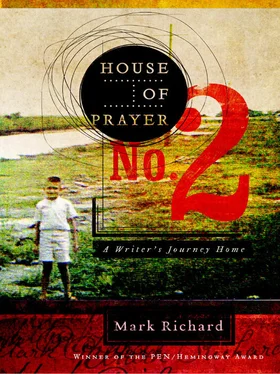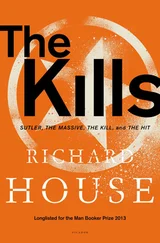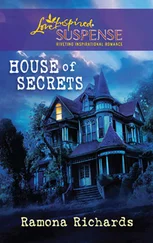When it’s time to stop for lunch, your father has made a couple of peaunt-butter-and-fig sandwiches for you, but Mason doesn’t eat lunch, says he isn’t hungry, and you realize he didn’t bring a lunch, so the next time your father doesn’t bring a lunch either. You all drive to a colored country store, and your father buys lunch for everyone—little tins of Vienna sausages, cellophane cubes of saltines, slices of hard rat cheese the black man cuts off a block with a large knife, and RC Colas to drink. What you notice is how your father knows the owner of the little colored store and some of the black men who sit on the soft-drink cooler. Outside the store your father introduces you to a hundred-year-old black man sharpening a piece of metal on an old grinding stone. When your father’s surveyor friend asks your father later how he knows the hundred-year-old man, your father says he gave him a ride home once. He’s a very interesting fellow , your father says.
One morning your father pulls in to Mason’s yard and a hound you’ve never seen before comes scramble-barking out from under the house. When Mason doesn’t come out, you open your car door to knock. Dogs never bite you. You and your father are let inside the house by a woman who says she is Mason’s wife. The single room is bright, lit by bare bulbs hanging from the ceiling. The windows are plastered over with newspaper. It’s stifling hot from a woodstove, and smoky. Single beds are braced together, clothes are hung on long ropes. Things look like they’ve been blown against the walls by a tornado. When you look closely, there are faces in the piles of rags on the beds. Mason’s wife is very sorry, but Mason is in the county hospital. Mason has gone insane. At the hospital they found that a roach had crawled into one of his ears and become stuck and died. The fluid built up behind the blockage and affected his brain. Mason went insane in the one room with his family for a few days before the eldest daughter could escape and fetch help.
You look at the eldest daughter. She looks older than her mother, but Mason told you once as you waited deep in the lake woods for your father to make his computations in his little surveyor’s notebook that his eldest daughter is about your age. You look at her, and she stares straight back at you. Years later, when you hear she has become a witness for Christ in the Holy Land, you are not surprised.

FORTUNATELY, THERE IS AN OUT-OF-CONTROL FIRE in the Great Dismal Swamp that your father must see about and he decides to take you with him. Your father shows you the ditch George Washington surveyed to drain the swamp and the little railroad the loggers built to haul out the juniper logs. He shows you where he once saw a bear swimming the ditch with a cub on its back. He starts to tell you something about the tannic acid in the water of Lake Drummond when you come around a corner of the dirt road and see pumper trucks and firehoses abandoned and farther on, in thickening smoke, a lost school bus of frightened sailors from Norfolk who have been impressed into firefighting service. The wind has shifted, and they have panicked, the smoke pouring across the ground at them. Your father tries to explain to them that it is a peat fire mainly burning centuries of decay in the soil and that it probably won’t hurt them, and right at that moment you hear some men shouting and you look over just in time to see a bulldozer being swallowed up in a deep smoky hole. See, your father says, the fire is burning underneath us.
Driving deeper into the smoke, you and your father pass more panicky people fleeing in the opposite direction. You arrive at Lake Drummond. Your father tells you the lake is a poquoson, the round water is actually higher than anything around it, like a coffee cup saucer turned upside down. A meteor strike, probably , says your father. It’s a ghosty place and you like it, moss from the cypress trees, a black mood in the water, peat smoke blowing across it until you can’t see very far and your eyes begin to burn and your father says, We better get out of here , and you do.
As you flee the fire, your father stops just ahead of the rolling smoke and crackling flames that are scalping the crowns of the trees, and you get out and take pictures of each other with a plastic camera you have brought. In one photo you stand on a little rusty railway handcar, the kind with the levers you pump to propel yourself along the tracks. You are pretending you are working the frozen levers trying to outrun the flames that are right behind you. Your father smiles as he takes your picture.
It is the best afternoon you will ever have in your life with your father.

THERE IS A SAWMILL and a paper mill in your town on the banks of a black-water river. You can hear the debarking drums turn all night stripping logs. There is sulfur in your air, and ash. Sometimes in the morning the ash lies thinly over everything, the mill has a free carwash to flush it off. The chugging smokestacks of the paper mill billow heavy white, day and night, mostly steam, they say. Some people think there’s also something in the air that is an irritant to the central nervous system. From New York to Florida, people say, I knew somebody from your town, and they was WILD . From outer space, a new thermal heat picture shows a teardrop of warmth pluming up eastward from the smokestacks of your town, over Camptown, the colored shacks of the men whose forearms are blistered by stoking the boilers with coal and wood chips, whose lungs are ruined from unloading lime by the wheelbarrow from the bleach train, the janitors of the paper salesmen’s offices. People say the warmth is the reason it doesn’t snow so much anymore. Some people say your town stinks. Smells like money, is what your town says.
Jamestown is barely to the north, the town is full of its English ancestors, some Irish, some Huguenots. Richmond is to the northwest, close enough that on still days people could hear the cannons from its siege. The river through your town was Lee’s last lifeline of food coming up in coasters from the Albemarle Sound. There is ancestor worship in your town. Quakers had spread abolition among the upper Baptists and lower Methodists and most had opposed secession, yet many rode off to join the fight for their own reasons, living in the saddles of horses for twelve days at the Battle of Brandy Station, three horses shot out from one of the citizens in one fight, one citizen shot dead the day before Appomattox. One officer for whom your street is named, finally finding his way home, to this county, this landscape and its women not as gang-raped by Union soldiers as others to the south, not having had as many typhus children’s graves dug up by Union soldiers looking for buried silverware as others to the south, this one man coming home from seeing what he had seen and deciding to start the church where The Preacher preaches, this old Confederate officer finally just this emaciated thing in grey rags with a black gun-blasted face—his wife, an aged old lady now, turning and seeing, one day, a specter in her meager garden, and it is him, home again to a house that still stands on your street to this day.
To the east, the coast is so close seagulls wheel over freshly picked peanut fields, and softball themselves there in flocks to weather Atlantic storms. To the immediate south is the Carolina border, and the accents in your town are more Carolinian than Virginian, the open o vowel and the soft lift and glide of end-of-sentence cadence. To the southeast your river delivers its black swampy water to one and then another fresher, larger river that nourishes the tidal brackish Albemarle Sound and then is drawn by the tides through the Outer Banks beyond where the Elizabethans had set foot and then disappeared.
Читать дальше













